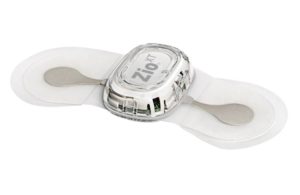
iRhythm Technologies (Nasdaq:IRTC) announced results of multiple studies supporting the use of its Zio technology in detecting AFib.
San Francisco-based iRhythm presented the results of three clinical research studies at The American College of Cardiology’s 71st Annual Scientific Session & Expo.
According to a news release, the studies further validate Zio as an option for early AFib detection while also showing that the Zio service can positively impact hospital resources and support the need for monitoring post-transcatheter aortic valve replacement (TAVR) discharge in high-risk patient populations.
The company’s Syncope study found that Zio AT monitored and aided in the diagnosis of qualified syncope patient candidates in an outpatient setting, safely monitoring patients upon discharge to avoid a potential 24-48-hour hospital stay. According to iRhtyhm, 8.2% of patients had an arrhythmia event triggering an MD notification, with nearly half (46%) of those occurring after 48 hours, demonstrating the importance of 14-day monitoring with Zio AT.
iRhythm found that using Zio AT in this study saved the healthcare system an estimated 136 inpatient hospitalization days.
The company’s Guard-AF study of 5,713 patients wearing Zio XT found that, among the older primary care population in the study, 4.5% had AFib detected within two weeks of monitoring with 0.5% of participants reporting persistent AFib and 4% demonstrating paroxysmal AFib.
In the Rutgers-TAVR study, iRhythm reported that monitoring with Zio AT post-TAVR discharge can identify AFib, high-degree atrioventricular block (HAVB) and supraventricular tachycardia (SVT) in patients at risk for arrhythmic disorders. During monitoring of patients who wore the device for up to 14 days, the most common arrhythmias were AFib (25%), then HAVB (7%) and SVT > 30 secs (6%).
The company said the results support the need for monitoring post-TAVR discharge in high-risk patient populations.
“As the healthcare system continues to progress towards value-based medicine, we recognize that providers are increasingly challenged to improve clinical outcomes for patients while controlling costs,” iRhythm EVP of Clinical Operations Dietra Jones said in the release. “We are excited that these new data continue to demonstrate that Zio’s clinical accuracy is beneficial in directing patient care across a variety of settings, while improving clinical workflows and hospital capacity. We are also particularly encouraged to see further evidence of Zio’s ability to support early detection and diagnosis of AF in moderate-risk populations.”